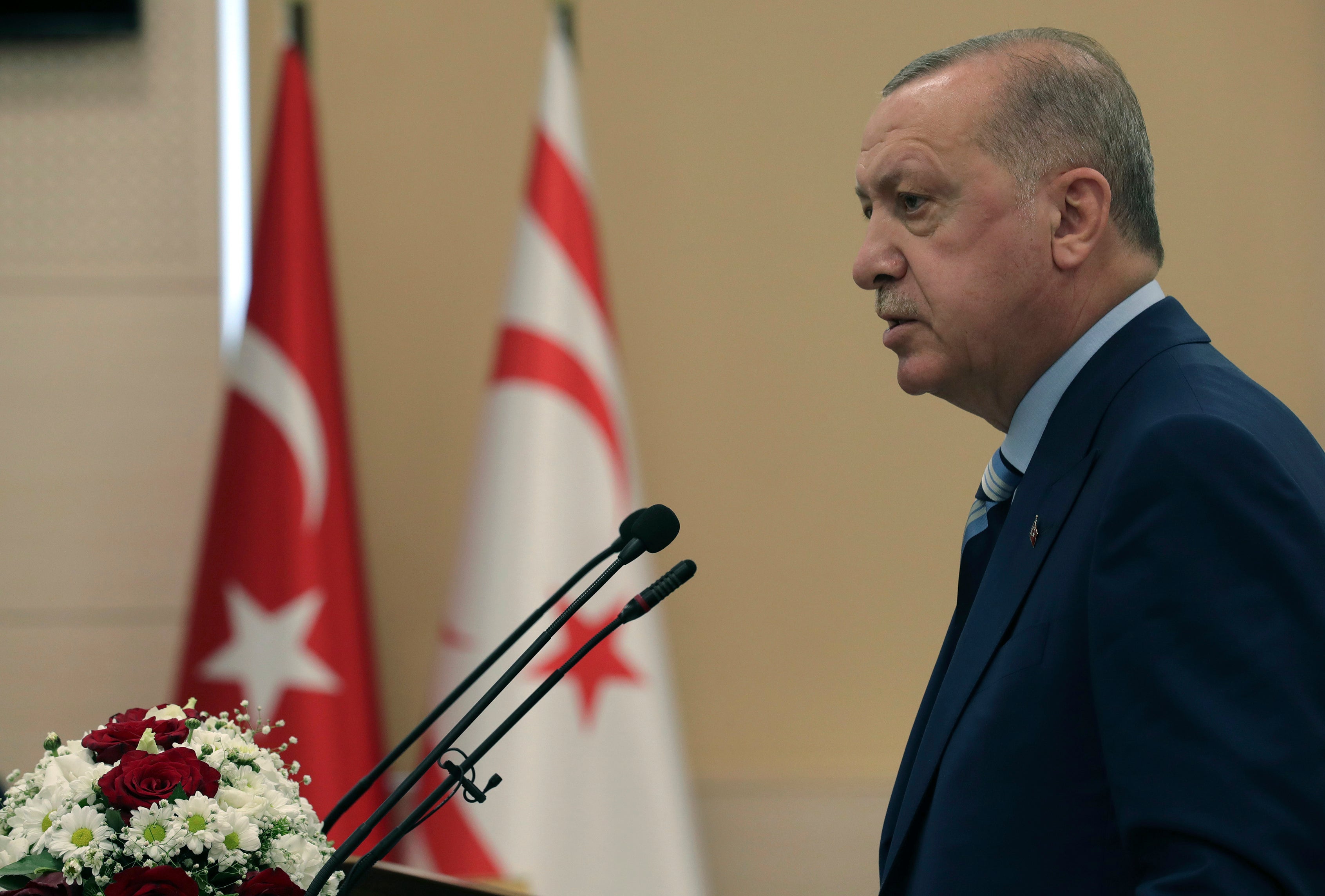Turkish president: Two-state deal only way for Cyprus peace
Turkey's president says the only route to lasting peace on ethnically divided Cyprus is through the international community's acceptance of two separate states on the east Mediterranean island nation

Your support helps us to tell the story
From reproductive rights to climate change to Big Tech, The Independent is on the ground when the story is developing. Whether it's investigating the financials of Elon Musk's pro-Trump PAC or producing our latest documentary, 'The A Word', which shines a light on the American women fighting for reproductive rights, we know how important it is to parse out the facts from the messaging.
At such a critical moment in US history, we need reporters on the ground. Your donation allows us to keep sending journalists to speak to both sides of the story.
The Independent is trusted by Americans across the entire political spectrum. And unlike many other quality news outlets, we choose not to lock Americans out of our reporting and analysis with paywalls. We believe quality journalism should be available to everyone, paid for by those who can afford it.
Your support makes all the difference.The only route to lasting peace on ethnically divided Cyprus is through the international community’s acceptance of two separate states on the east Mediterranean island nation, Turkish President Recep Tayyip Erdogan said Monday.
Erdogan said that a “permanent and sustainable solution” to the country’s division “can only be possible” by taking into account that there are “two separate states and two separate people.”
“The international community will sooner or later accept this reality," Erdogan told Turkish Cypriot lawmakers in Cyprus' breakaway north before celebrations to mark the 47th anniversary of a Turkish invasion that split the island along ethnic lines.
Turkey's 1974 invasion came in the wake of a Greek junta-backed coup that aimed at union with Greece. Only Turkey recognizes a Turkish Cypriot declaration of independence and keeps 35,000 troops there.
In a 1983 resolution, the U.N. Security Council denounced the Turkish Cypriots' secessionist move as legally invalid and called for its withdrawal. The European Union has also ruled out a two-state deal. European Commission President Ursula Von der Leyen said in Nicosia earlier this month that the 27 member-bloc which Cyprus joined in 2004 would “never, ever" accept such an arrangement.
But Turkey and the Turkish Cypriots say a two-state deal is the only way to peace because nearly five decades of negotiations based on forging a federation have led nowhere. They fault Greek Cypriots' unwillingness to “accept the realities" and see Turkish Cypriots as “equal partners."
Cyprus' internationally recognized government seated in the island's Greek Cypriot south says there can be no deviation from a 1977 deal to reach a formal peace accord by negotiating a federation made up of a Turkish Cypriot and a Greek Cypriot zone.
But the majority Greek Cypriots object to Turkey's demand for a permanent military presence on the island amid fears that it would turn the island into Ankara's “protectorate." They also push back against a Turkish Cypriot demand for veto rights, fearing Ankara's meddling in Cypriot internal affairs.
Cypriot President Nicos Anastasiades said Erdogan's remarks were “an expected repeat of Turkey's unacceptable positions."
Cyprus' division has fueled tensions over hydrocarbon deposits in the eastern Mediterranean and continues to act as a major impediment to Turkey's already troubled bid to join the EU.
A fervent supporter of a two-state deal, Turkish Cypriot leader Ersin Tatar also advocates for even closer ties to Ankara.
But many Turkish Cypriots object to what they see as Erdogan's heavy hand in their own matters as pat of his bid for absolute political and economic control of the north.
Lawmakers from two left-wing Turkish Cypriot parties, the Republican Turkish Party and the Communal Liberation Party which garnered a combined 30% of the vote in 2018 parliamentary elections boycotted Erdogan's address to parliament to underscore the point.
Meanwhile, hundreds of Greek Cypriots staged a protest against Erdogan's visit in Dherynia village near Varosha, an abandoned suburb of the town of Famagusta in the north that until recently had been off-limits and under strict Turkish military control.
Varosha had remained empty and barren since 1974, but Turkey and Turkish Cypriot authorities last year allowed access to the area. That enraged many of Varosha's Greek Cypriot residents who saw the move as a bid to pressure them into relinquishing their rights to their properties.
Protester Eleni Marangou said Turkish Cypriots also joined the protest to voice their wish for a peace deal reunifying Cyprus.
“Famagusta residents haven't forgotten their town and are united in demanding it back as well as an agreement that reunifies our country," Marangou told the Associated Press. “We want the powerful of this world to hear our voice."
___
AP journalist Ayse Wieting contributed to this report from Istanbul.